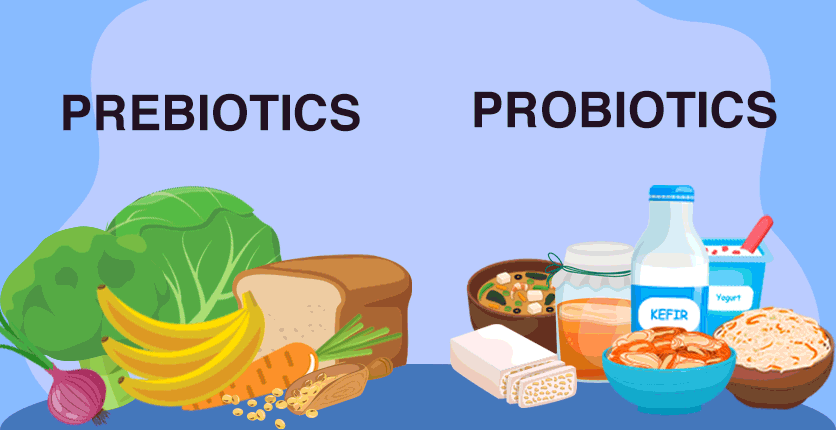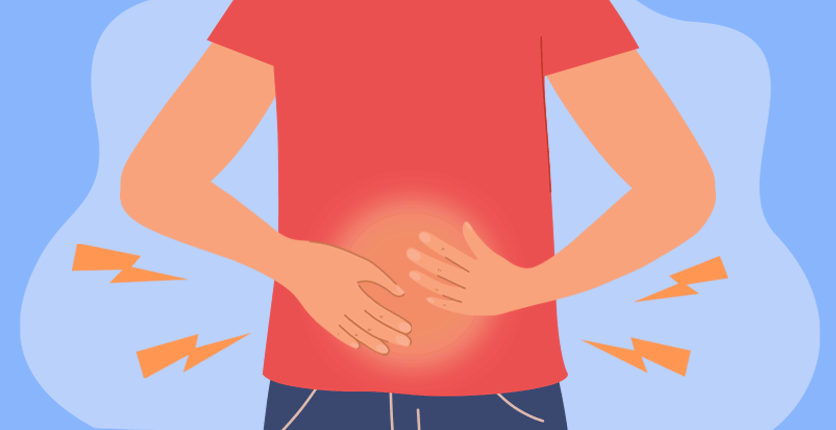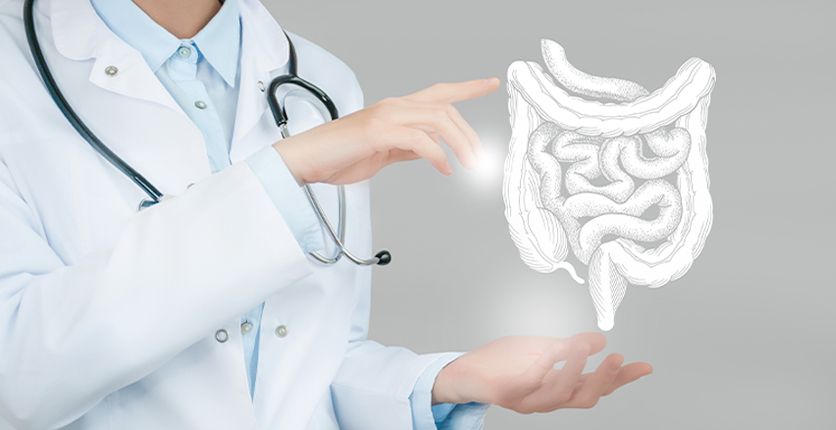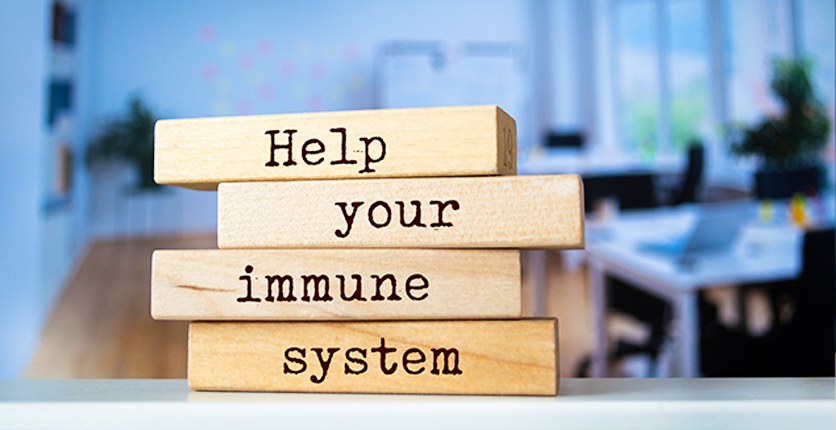Our gut digests and breaks down the food we eat into smaller, more elemental nutrients for absorption into the intestines. It’s also where bile is secreted; bile is a mixture of cholesterol, digestive enzymes and the waste products of red blood cells which have been destroyed within the body, so the gut has a role in the removal of waste products too.
According to Dr Eric Wee, a specialist in gastroenterology at Nobel Gastroenterology Centre, the gut is exposed to bacteria and viruses from what we eat and drink. A healthy gut will have a strong integrity and barrier to these pathogens, preventing them from entering our bodies and making us ill.
What is “gut health”?
Our gut is home to trillions of microorganisms, which are beneficial or potentially harmful. A healthy gut occurs when there’s a balance between these types of bacteria.
“Gut microorganisms play an important role in digestion, immune function, weight regulation and brain-gut signalling, and an imbalance is associated with a variety of health problems including diabetes, high cholesterol, heart disease, autoimmune diseases and inflammatory bowel conditions,” says Dr Andrea Rajnakova, a consultant gastroenterologist at Andrea’s Digestive, Colon, Liver and Gallbladder Clinic.
The composition of this “gut microbiome” changes over time and is affected by age, diet and environmental factors. Dr Rajnakova says that plant-heavy diets are associated with a greater diversity in the gut microbiome and have a greater abundance of bacteria responsible for the long-term processing of fibre.
How your gut microbiome is formed

Our gut microbiome is formed within one to two years of birth, as microorganisms are acquired through parent-to-child transmission and transfer from food, water and other environmental sources, says Dr Rajnakova. During birth and immediately after, bacteria from the mother and the surrounding environment colonise the baby’s gut.
The gut flora of breast-fed babies is mostly bifidobacterial, since breast milk carries prebiotic components, which allow for healthy bacterial growth. On the other hand, the gut flora of formula-fed infants is more diverse, with high numbers of different bacteria types, such as enterobacteriacae, enterococci bifidobacterial, bacteroides and clostridia.
Signs of an unhealthy gut

Dr Wee says that these common symptoms may point to an unhealthy gut:
- Bloating and indigestion (these are usually among the top complaints of patients)
- Acid reflux
- Abdominal pain, which may be experienced as a burning sensation, a poking pain, a dull ache or cramps
- Nausea and vomiting, which are common with gastric problems
- Diarrhoea, a change in bowel habits or changes in stool form or frequency
- The presence of blood in the stools, which may indicate bleeding from within the digestive tract
- Halitosis (bad breath), which may indicate a possible problem in the stomach
Ways to improve your gut health and digestion

“Your diet should contain complex carbohydrates and fibre-rich foods in the form of whole grains, vegetables, fruit and beans; good fat, such as those found in olive and avocado oils, nuts, seeds and fish; protein-rich foods like fish, poultry, nuts and beans; and vitamins and minerals,” says Dr Rajnakova. “It’s important to not only choose fresh, whole foods, but also to prepare them healthily and to consume appropriate meal portions. Avoid processed foods, additives and artificial sweeteners, and limit your intake of salt.”
Other than nutrition, Dr Rajnakova says that regular exercise and maintaining a healthy body weight are important to gut health.
Dr Wee also recommends avoiding unnecessary antibiotics, which tend to upset the equilibrium of our gut bacteria; eating on time and not skipping meals; managing stress, since excess stress can cause constipation, diarrhoea and gastric pain; and drinking plenty of water. Additionally, if you have stomach issues, it’s better to have small meals frequently throughout the day rather than a few large meals.
How prebiotics and probiotics can help your gut

Prebiotics are “food” for our gut bacteria, says Dr Wee. These non-digestible food components are present in plant foods such as bananas, vegetables, whole grains, onions and soybeans.
Probiotics, on the other hand, are live microorganisms that improve or restore our gut flora, says Dr Rajnakova. They are found in fermented dairy products such as yogurt and kefir, other fermented foods like kimchi, tempeh, miso, kombucha and sauerkraut, and probiotic-fortified foods.
“Probiotics such as health supplements may contain a variety of microorganisms, the most common of which belong to groups called Lactobacillus, Bifidobacterium and Saccharomyces,” she adds.
“Probiotic supplements may help reduce gastrointestinal discomfort, improve immune health, relieve constipation and prevent antibiotic-induced diarrhoea.”
Products combining prebiotics and probiotics are called synbiotics.
Dr Wee warns that people with a weakened immune system, such as patients undergoing cancer treatment or those taking immunosuppressive medicines, should avoid probiotics because the bacteria can cause infections.
Note: Please consult your GP or physician before embarking on any diet or treatment plan.
SAFRA members can sign up for a First Specialist Consultation at $120 nett at Nobel Gastroenterology Centre.
For the full list of health screening packages and discounts for SAFRA members, go to www.safra.sg/promotions/healthcare-products-and-services
Want more health articles like this, and other lifestyle content right in your inbox? Download the new SAFRA mobile app and opt in for the eNSman Newsletter – you don’t need to be a SAFRA member to subscribe – and never miss another story!







